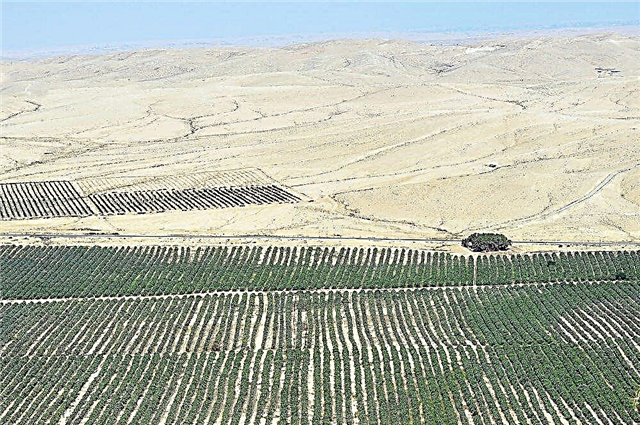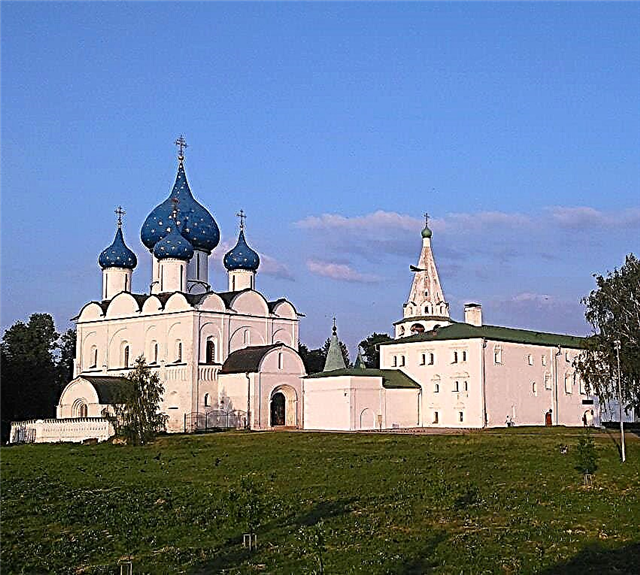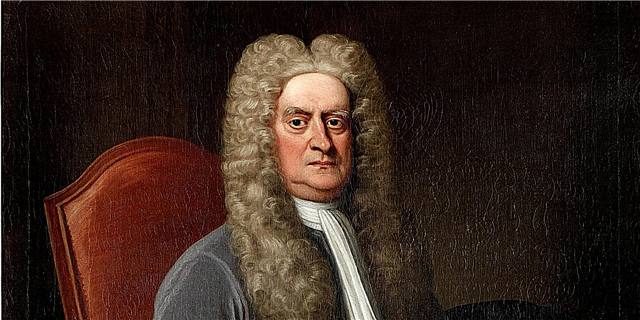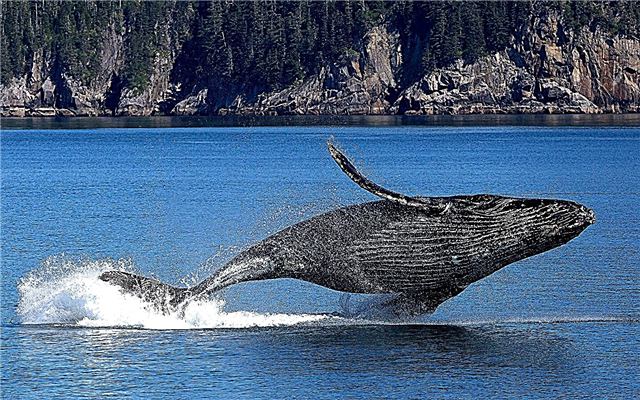The oceans cover about 72% of the Earth's surface and contain 97% of all water. They are the main sources of salt water and the main components of the hydrosphere. There are five oceans in total: the Arctic, Pacific, Atlantic, Indian and Antarctic.

Solomon Islands in the Pacific
Arctic Ocean
1. The area of the Arctic Ocean reaches 14.75 million square kilometers.
2. The air temperature near the shores of the Arctic Ocean reaches -20, -40 degrees Celsius in winter, and in summer - 0.
3. The plant world of this ocean is modest. This is all due to the small amount of sun that hits its bottom.
4. The inhabitants of the Arctic Ocean are whales, polar bears, fish and seals.
5.On the shores of the ocean, the largest seals live.
6. The Arctic Ocean has many glaciers and icebergs.
7. This ocean is rich in minerals.
8. A quarter of all oil on the planet is stored in the depths of the Arctic Ocean.
9.Some birds survive the winter in the Arctic Ocean.
10. This ocean has the most salty water in comparison with other oceans.
11. The salinity of this ocean can change throughout the year.
12. On the surface and in its depths, the ocean stores a lot of garbage.
13. The average depth of the Arctic Ocean is 3400 meters.
14. Voyages on ships across the Arctic Ocean are very dangerous due to underwater waves.
15. Even warm currents from the Atlantic are not able to warm water in such a cold ocean.
16. If all the glaciers of the Arctic Ocean melt, the world ocean level will rise by 10 meters.
17. The Arctic Ocean is considered the most unexplored of all oceans.
18. The volume of water in this ocean exceeds 17 million cubic kilometers.
19. The deepest part of this ocean is the depression in the Greenland Sea. Its depth is 5527 meters.
20. According to oceanologists' forecasts, the entire ice cover of the Arctic Ocean will melt by the end of the 21st century.
21. All waters and resources of the Arctic Ocean belong to a number of countries: the USA, Russia, Norway, Canada and Denmark.
22. The thickness of the ice in some parts of the ocean reaches five meters.
23. The Arctic Ocean is the smallest of all the oceans in the world.
24. Polar bears move across the ocean using drifting ice floes.
25. In 2007, the bottom of the Arctic Ocean was reached for the first time.
Atlantic Ocean
1.The name of the ocean originates from the ancient Greek language.
2. The Atlantic Ocean is the second largest by area after the Pacific Ocean.
3.According to legends, the underwater city of Atlantis is located at the bottom of the Atlantic Ocean.
4. The main attraction of this ocean is the so-called underwater hole.
5. The most distant island in the world of Bouvet is located in the Atlantic Ocean.
6. The Atlantic Ocean has a sea without borders. This is the Sargasso Sea.
7. The mysterious Bermuda Triangle is located in the Atlantic Ocean.
8. Previously, the Atlantic Ocean was called the "Western Ocean".
9. Cartographer Wald-Semüller gave the name to this ocean in the 16th century.
10.The Atlantic Ocean also ranks second in depth.
11.The deepest part of this ocean is the Puerto Rico Trench, and its depth is 8,742 kilometers.
12. The Atlantic Ocean has the saltiest water of all oceans.
13. The famous warm underwater current, the Gulf Stream, flows through the Atlantic Ocean.
14. The area of this ocean passes through all climatic zones of the world.
15. The number of fish caught from the Atlantic Ocean is not less than that of the Pacific, despite the different sizes.
16.This ocean is home to seafood such as oysters, mussels and squid.
17. Columbus was the first navigator to dare to cross the Atlantic Ocean.
18. The largest island in the world, Greenland is located in the Atlantic Ocean.
19. The Atlantic Ocean accounts for 40% of the world's fishing industry.
20. There are many oil-producing platforms on the waters of this ocean.
21.The diamond industry has also affected the Atlantic Ocean.
22.The total area of this ocean is almost 10,000 square kilometers.
23 The largest number of rivers flow into the Atlantic Ocean.
24. The Atlantic Ocean has icebergs.
25. The famous ship Titanic sank in the Atlantic Ocean.
Indian Ocean
1.In terms of area occupied, the Indian Ocean ranks third, after the Pacific and Atlantic.
2. The average depth of the Indian Ocean is 3890 meters.
3. In ancient times, this ocean was called "Eastern Ocean".
4. The Indian Ocean has been sailed in the fifth millennium BC.
5. All climatic zones in the Southern Hemisphere pass through the Indian Ocean.
6.Near Antarctica, the Indian Ocean has ice.
7. The subsoil of this ocean has huge reserves of oil and natural gas.
8.The Indian Ocean has such a phenomenal phenomenon as "glowing circles", the appearance of which even scientists cannot explain.
9. In this ocean, the second sea in terms of salt level is located - the Red Sea.
10) The largest coral assemblages found in the Indian Ocean.
11. The blue-ringed octopus is one of the most dangerous creatures to humans, and it lives in the Indian Ocean.
12.The Indian Ocean was officially discovered by the European navigator Vasco da Gama.
13. The waters of this ocean are inhabited by a huge number of creatures that are deadly to humans.
14. The average ocean water temperature reaches 20 degrees Celsius.
15.57 groups of islands washed by the Indian Ocean.
16.This ocean is considered the youngest and warmest in the world.
17.In the 15th century, the Indian Ocean was one of the main transport routes in the world.
18. It is the Indian Ocean that connects all the most important ports on the planet.
19. This ocean is incredibly popular with surfers.
20. The ocean current changes with the seasons, and the reason for this is the monsoon wind.
21.The Sunda Trench, located near the island of Java, is the deepest part of the Indian Ocean. Its depth is 7727 meters.
22. In the territory of this ocean, pearls and mother-of-pearl are mined.
23 Great white and tiger shark live in the waters of the Indian Ocean.
24.The largest earthquake in the Indian Ocean was in 2004 and reached 9.3 points.
25. The oldest fish that lived in the era of the dinosaurs was found in the Indian Ocean in 1939.
Pacific Ocean
1. The Pacific Ocean is the most majestic and largest ocean in the world.
2. The area of this ocean is 178.6 million square meters.
3. The Pacific Ocean is considered the oldest in the world.
4. The average depth of this ocean reaches 4000 meters.
5. The Spanish sailor Vasco Nunez de Balboa is the discoverer of the Pacific Ocean, and this discovery took place in 1513.
6. The Pacific provides the world with half of all seafood consumed.
7 Great Barrier Reef - The largest coral accumulation found in the Pacific Ocean.
8. The deepest place in not only this ocean, but also in the world is the Mariana Trench. Its depth is about 11 kilometers.
9. There are about 25 thousand islands in the Pacific Ocean. This is more than any other ocean.
10. In this ocean, you can find chains of underwater volcanoes.
11. If you look at the Pacific Ocean from space, it looks like a triangle.
12. On the territory of this ocean more often than in any other place on the planet, volcanic eruptions and earthquakes occur.
13. More than 100,000 different animals consider the Pacific Ocean their home.
14. The speed of the Pacific tsunami exceeds 750 kilometers per hour.
15. The Pacific Ocean boasts the highest tides.
16. New Guinea Island is the largest piece of land in the Pacific Ocean.
17 An unusual type of crab that is covered with fur was found in the Pacific Ocean.
18. The bottom of the Mariana Trench is covered with viscous mucus, not sand.
19 The largest volcano in the world was discovered in the Pacific Ocean.
20. This ocean is home to the most poisonous jellyfish in the world.
21. In the polar regions of the Pacific Ocean, the water temperature reaches -0.5 degrees Celsius, and around the equator +30 degrees.
22. Rivers flowing into the ocean bring about 30,000 cubic meters of fresh water annually.
23. In terms of area, the Pacific Ocean takes up more space than all the continents of the Earth combined.
24. The Pacific Ocean is the most seismically unstable zone in the world.
25 In ancient times, the Pacific Ocean was called "Great".









